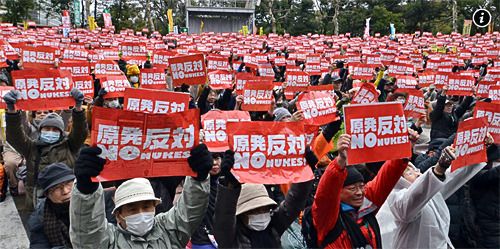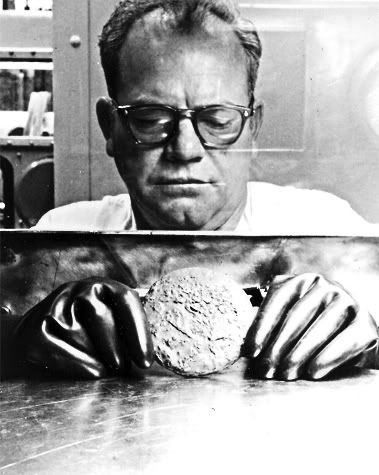General Discussion
Related: Editorials & Other Articles, Issue Forums, Alliance Forums, Region ForumsNews coverage of Fukushima disaster minimized health risks to general population
Science Daily reported a new analysis finds that U.S. news media coverage of the Fukushima disaster largely minimized health risks to the general population. Researchers analyzed more than 2,000 news articles from four major U.S. outlets.
What's not to sideshow?
News Coverage of Fukushima Disaster Found Lacking
American University sociologist’s new research finds few reports identified health risks to public
By Rebecca Basu
American University, March 10, 2015
Four years after the 2011 Fukushima Daiichi nuclear disaster, the disaster no longer dominates U.S. news headlines, though the disabled plant continues to pour three tons of radioactive water into the ocean each day. Homes, schools and businesses in the Japanese prefecture are uninhabitable, and will likely be so forever. Yet the U.S. media has dropped the story while public risks remain.
A new analysis by American University sociology professor Celine Marie Pascale finds that U.S. news media coverage of the disaster largely minimized health risks to the general population. Pascale analyzed more than 2,000 news articles from four major U.S. outlets following the disaster's occurrence March 11, 2011 through the second anniversary on March 11, 2013. [font color="green"]Only 6 percent of the coverage—129 articles—focused on health risks to the public in Japan or elsewhere. Human risks were framed, instead, in terms of workers in the disabled nuclear plant.[/font color]
Disproportionate access
"It's shocking to see how few articles discussed risk to the general population, and when they did, they typically characterized risk as low," said Pascale, who studies the social construction of risk and meanings of risk in the 21st century. "We see articles in prestigious news outlets claiming that radioactivity from cosmic rays and rocks is more dangerous than the radiation emanating from the collapsing Fukushima Daiichi nuclear plant."
Pascale studied news articles, editorials, and letters from two newspapers, The Washington Postand The New York Times, and two nationally prominent online news sites, Politico and The Huffington Post. These four media outlets are not only among the most prominent in the United States, they are also among the most cited by television news and talk shows, by other newspapers and blogs and are often taken up in social media, Pascale said. In this sense, she added, understanding how risk is constructed in media gives insight into how national concerns and conversations get framed.
Pascale's analysis identified three primary ways in which the news outlets minimized the risk posed by radioactive contamination to the general population. Articles made comparisons to mundane, low-level forms of radiation;defined the risks as unknowable, given the lack of long-term studies; and largely excluded concerns expressed by experts and residents who challenged the dominant narrative.
[font color="green"]The research shows that corporations and government agencies had disproportionate access to framing the event in the media, Pascale says. Even years after the disaster, government and corporate spokespersons constituted the majority of voices published. News accounts about local impact—for example, parents organizing to protect their children from radiation in school lunches—were also scarce. [/font color]
Globalization of risk
Pascale says her findings show the need for the public to be critical consumers of news; expert knowledge can be used to create misinformation and uncertainty—especially in the information vacuums that arise during disasters.
"The mainstream media—in print and online—did little to report on health risks to the general population or to challenge the narratives of public officials and their experts," Pascale said. "Discourses of the risks surrounding disasters are political struggles to control the presence and meaning of events and their consequences. How knowledge about disasters is reported can have more to do with relations of power than it does with the material consequences to people's lives."
While it is clear that the Fukushima Daiichi nuclear meltdown was a consequence of an earthquake and tsunami, like all disasters, it was also the result of political, economic and social choices that created or exacerbated broad-scale risks. In the 21st century, there's an increasing "globalization of risk," Pascale argues. Major disasters have potentially large-scale and long-term consequences for people, environments, and economies.
[font color="green"]"People's understanding of disasters will continue to be constructed by media. How media members frame the presence of risk and the nature of disaster matters," she said.[/font color]
SOURCE with Links: http://www.american.edu/media/news/20150310-Fukushima.cfm
Almost should just bold and make green the entire article, seeing how Rupert Murdoch and the rest of CIABCNNBCBSFixedNoiseNutworks won't do their jobs.
cilla4progress
(24,767 posts)not ...
Octafish
(55,745 posts)In 2011, I remember one DUer from Japan sent word that people there were experiencing a news blackout and appreciated what DUers were posting.

Fukushima victims speak. Will anyone listen?
Four years later, Japanese police and prosecutors have yet to conduct a thorough investigation
by Trisha Pritikin
Al Jazeera.com, March 11, 2015
On March 11, 2011, a 9.0 magnitude earthquake off the coast of northeastern Japan triggered a tsunami that led to the meltdown of three nuclear reactors at the Fukushima Daiichi power plant. While immediate health consequences are yet to be determined, more than 159,000 people were evicted from areas deemed too radioactive for human habitation. The World Health Organization has warned about “increased risk of certain cancers” for people in the most contaminated areas.
In the U.S. the disaster led to the creation of a federal task force and new safety and security standards at nuclear plants. On the fourth anniversary of the Fukushima disaster, Americans may be surprised to learn that no one in Japan has been held accountable. In fact, Japanese police and prosecutors have yet to conduct a thorough investigation.
The Fukushima victims are demanding criminal prosecution of the Tokyo Electric Power Co. (TEPCO) and relevant government officials for criminal negligence for not safeguarding the reactors and the often catastrophic mishandling and misinformation during and after the disaster.
The innocent people whose lives were devastated by an arguably preventable nuclear disaster believe a successful investigation and prosecution will result in more stringent regulations, more cautious and responsible corporations and ultimately the protection of future generations. All this is crucial. But a public accounting of the tragedy is just as urgent not only to Fukushima victims but also to the disenfranchised victims of radiation exposure around the world.
Seeking accountability
I feel a personal connection to the downwind victims of Fukushima. I, too, have felt disempowered and invisible, longing to see those responsible for my radiation-induced health damage to finally be brought to justice. Just as Fukushima’s children could have been protected from thyroid cancer, thousands of people, including me, were exposed to radiation discharged decades ago from the (still leaking) Hanford nuclear weapon production facility near my childhood home in Richland, Washington. As in Richland, the children of Fukushima were not given potassium iodide tablets to block the uptake by our developing thyroid glands of radioiodine in contaminated milk and food — a simple protective measure understood since the dawn of the atomic age. Both Hanford and Fukushima communities put their trust in authorities who violated that trust and put their lives in danger.
CONTINUED...
http://america.aljazeera.com/opinions/2015/3/fukushima-victims-speak-will-anyone-listen.html
News Blackouts just happen to serve the interests of those whose actions might be construed as criminal.
greatlaurel
(2,004 posts)Interesting read. I am sure the nuclear industry apologists will swarm soon.
Octafish
(55,745 posts)
DOE-STD-1128-98
Guide of Good Practices for Occupational Radiological Protection in Plutonium Facilities
EXCERPT...
4.2.3 Characteristics of Plutonium Contamination
There are few characteristics of plutonium contamination that are unique. Plutonium
contamination may be in many physical and chemical forms. (See Section 2.0 for the many
potential sources of plutonium contamination from combustion products of a plutonium fire
to radiolytic products from long-term storage.) [font color="blue"]The one characteristic that many believe is
unique to plutonium is its ability to migrate with no apparent motive force. Whether from
alpha recoil or some other mechanism, plutonium contamination, if not contained or
removed, will spread relatively rapidly throughout an area. [/font color]
SOURCE (PDF file format): http://energy.gov/sites/prod/files/2013/07/f2/doe-std-1128-98_cn2.pdf
You are most welcome, greatlaurel! I welcome the apologists. Their words do more than reveal their ignorance, they serve to make plain the crimes of the nuclear industry.
Octafish
(55,745 posts)Octafish
(55,745 posts)Fish Information & Services
Friday, March 13, 2015, 02:50 (GMT + 9)
A new report on the Fukushima Daiichi nuclear power plant disaster in Japan raises concerns as to seafood safety given the radioactivity levels in tuna and other fish.
The 2015 Fukushima Report was prepared under the direction of Professor Jonathan M. Samet, Director of the Institute for Global Health at the University of Southern California (USC), as a Green Cross initiative.
“Our local presence and ongoing activities to help the communities impacted by radioactive contamination in Chernobyl and Fukushima gives us first-hand experience of the human and environmental consequences of nuclear disasters,” pointed out Adam Koniuszewski, Chief Operating Officer of Green Cross International.
SNIP...
In addition to the radioactive material initially released in the ocean, water leakage at the Fukushima Daiichi power plant remains a problem four years after the accident.
SNIP...
Green Cross is committed to phasing out nuclear energy worldwide. The organisation is also concerned about the effects military use of nuclear materials can have on the environment and health. Because of the worldwide effects of climate change and nuclear disasters, it is urgently necessary for the global community to work together on developing and using renewable energies, boosting energy efficiency, and pursuing a controlled, global end to the production of nuclear power.
CONTINUED...
http://www.fis.com/fis/worldnews/worldnews.asp?monthyear=&day=13&id=75191&l=e&special=0&ndb=0